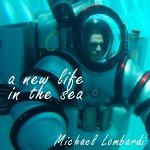After stumbling on a recent and timely New York Times article about the privatization of science, I thought it would make for a compelling Blog post to discuss the matter from ‘the bottom up’.
The article describes several science and exploration initiatives underway that have been financed by private companies or individuals in more recent years, referencing that this private sector excitement may indeed be needed to boost scientific practice given the struggles with public sector/federal funding mechanisms that have been the convention for decades. The article went on to recognize that personal interest/bias can play a role in determining science priorities, and that may or may not be in line with actual inherent needs of scientists on the lineage of doing their work. However, by contrast and quite interestingly, perhaps private interests that are more in line with public interest and perhaps more broad impact should indeed become the priority and economic driver for hard science.
This is all very interesting, and a timely topic for discussion from a few perspectives. As a scientist and innovator, I am lead down paths based on asking questions and generating hypotheses. Often times, these acute questions are far from interesting in the public eye, but may often be needed to rule out a theory, or to break new ground. As an explorer, on the other hand, I am interested in work with tremendous public appeal that may drive those new points of inquiry. In practice, there is no real middle ground middle ground, and both vantage points are needed to make progress.
In my own experiences, the conventional funding mechanisms lend little to creative and potentially high risk programs. By contrast, the private world will embrace more far-reaching ideas. So, to get from here to there requires some degree of investment. The question becomes, “on whose nickel?” In my world, by necessity, I have set out to do this largely out of pocket, making both good and bad personal investments into my own work. Call it ‘productive marketing’ if you will – it was the only foreseeable way to justify an outside the box approach to solving a new problem, and achieving some degree of market position that warranted continued investment by more conventional sources.
Business people say this is smart and savvy, while scientists say I’m crazy and reckless. In my own very small way, privatizing an investment strategy into science and exploration with strong personal appeal resulted in a very personal tie with my work – i.e. it was no longer just a job – it was a way of life, something I believe in, and is a body of work that I’ll continue to work relentlessly to advance.
One might ask why any individual, wealthy or not, might invest in science as it is often not profitable. That answer is simple – our [human] perpetual state of inquiry is what drives us, and those who embrace that state of inquiry and have the resources to pursue some level of advancement should be celebrated as the true benefactors of our evolving society and culture. Change is always needed, and there is no better way to make change than with strategically placed catalysts within the humanities disciplines.
In today’s world, I think the measureable successes will come from utilizing the tools of globalization – from business models to communication strategies – to attract like-minded individuals and businesses across any number of industry sectors to drive today’s big thematic interests in an ultimately sustainable way. In short – the scientists can’t be afraid to reach out to the private sector for unconventional support, and those in the private sector should be encouraged, and perhaps even educated on creative means to ‘invest in exploration’.
We’ve made that investment before, and it lead to entirely new frontiers to expand our civilization and culture. There’s no reason why we can’t do it again.
For more from the author, visit oceanopportunity.com. Donate today to enable exploration and to keep related content coming!
![]()
Related articles
 motives in exploration – science or discovery?
motives in exploration – science or discovery? Speculation on why our modern era is not producing profound science, like that of Darwin, Maxwell and Einstein.
Speculation on why our modern era is not producing profound science, like that of Darwin, Maxwell and Einstein. 100+ scientists and economists call on Obama and Kerry to reject Keystone XL
100+ scientists and economists call on Obama and Kerry to reject Keystone XL Science needs a different creativity than arts
Science needs a different creativity than arts Ecology: the most important science of our times
Ecology: the most important science of our times



